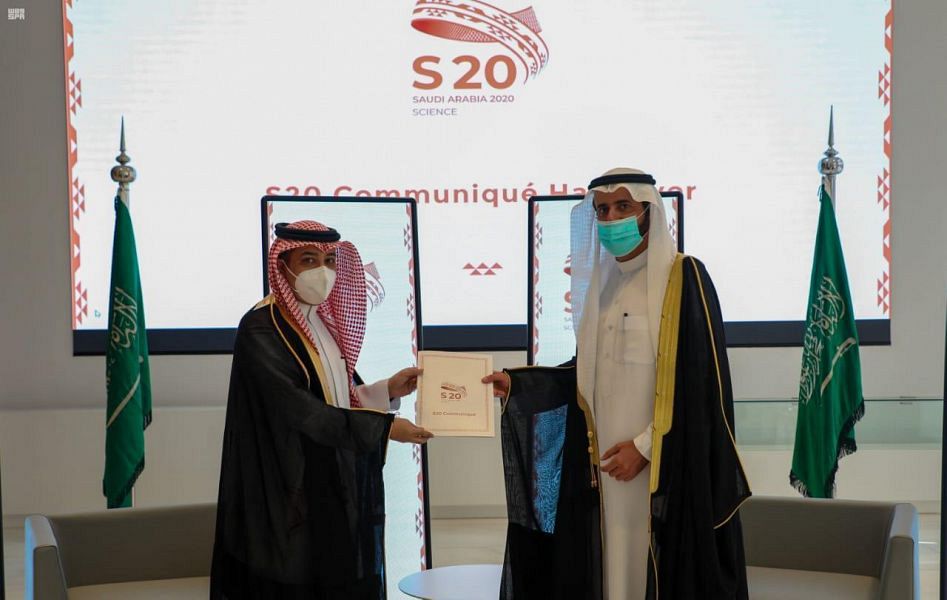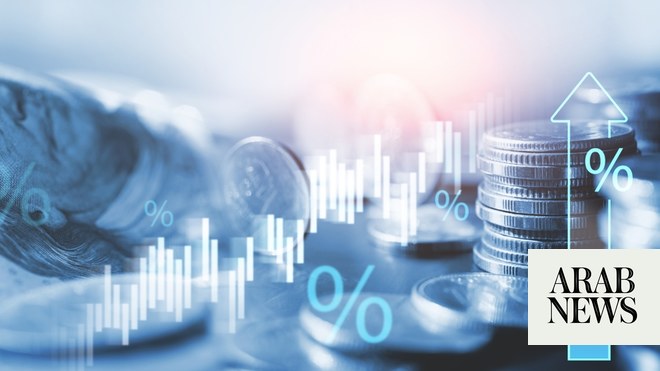
Riyadh, October 4, 2020, SPA -- Since the Kingdom of Saudi Arabia assumed presidency of the Group of Twenty (G20) for the year 2020, as per a decision of the foreign ministers of the group‘s countries in the Japanese city of Nagoya in November 2019, a strenuous work was stepped up to accelerate the implementation of the G20 summit program, upon the directives of the Custodian of the Two Holy Mosques King Salman bin Abdulaziz Al Saud and with a close follow-up and direct supervision of His Royal Highness Prince Mohammed bin Salman bin Abdulaziz, Crown Prince, Deputy Prime Minister and Minister of Defense of the Kingdom of Saudi Arabia.
Saudi Arabia’s presidency of the G20 seeks to support and stimulate innovation in the world, achieve prosperity, empower the world‘s people and preserve the earth. It also realizes that reaching effective and comprehensive recommendations, particularly in light of the recent spread of the novel Coronavirus (COVID-19) pandemic, will only be achieved by widening the scope of participation in the discussions of the G20. In this regard, the presidency is committed to provide support for the G20 engagement groups and enable them to act independently in its capacity as a voice and representative of 4.6 billion people of the world.
The Presidency of the Kingdom of Saudi Arabia of the G20 has attached great attention to the work of the eight engagement groups, as they constitute the core of the efforts of the G20 for this year, with the aim of building a more resilient and better world for all. This is represented in the participation of these groups in the G20’s ministerial and extraordinary meetings, as well as their contribution to the policy-making of the G20 through offering their unique and independent perspectives.
The eight engagement groups are considered a representative of civil society institutions and private sector in the G20, as they present a wide-range spectrum of views on financial and socio-economic challenges at the discussion table of the summit. The engagement groups represent independent panels led by organizations from the civil society and private sector in the host country. These organizations, in collaboration with their counterparts from G20 countries, seek to develop policy recommendations in order to be formally submitted to the G20 leaders for consideration.
Business Group (B20) is the G20’s first ever created engagement group, representing the private sector. During Saudi Arabia’s presidency, this group is chaired by Vice Chairman and CEO of SABIC, Yousef Al-Benyan, and Sherpa (representative) Dr. Abulwahab Al-Saadoon whereas the Saudi Chambers of Commerce and Industry serves as the leading institution of the group this year.
Set up during South Korea’s Presidency of the G20 in 2010, the B20 aims at advocating the interests of the business sector in the G20 countries. The group works in collaboration with the knowledge partners to develop the policies and proposals of the group and manages to raise issues of concern to the leaders of the G20 countries.
The Youth Group (Y20), a youth-led event, was designed to bring together young leaders to discuss the economic challenges facing and opportunities offered to today‘s youths. It also focuses on future preparedness, youth empowerment and global citizenship. This year, it is headed by Othman Al-Muammar and mutually led by MiSK and Ithra institutions.
The Labour Group (L20), which includes trade unions and workers‘ committees, is chaired by the Chairman of the National Committee for Workers‘ Committees of the Kingdom of Saudi Arabia Eng. Nasser Al-Jaryad. The committee is itself the leading institution for the group for this year.
--More
12:56 LOCAL TIME 09:56 GMT
0007 G20 Eight Economic Engagement Groups Set up a Road Map for Financial and Social Challenges 2 Riyadh The engagement group discusses the G20 program for empowering women, youths, labor standards and trade union rights in the Arab world and underscoring the importance of social protection and labor market policies with a more flexible return to work. It also addresses labor issues and market stability, submitting recommendations that help the (G20) group reaching solutions supposed to accommodate the demands of workers of the world and meet their aspirations.
The Think (T20) engagement group consists of a network of think tanks and researchers. It is headed by the Vice President for Research at King Abdullah Center for Petroleum Studies and Research (KAPSARC) Dr. Fahd Al-Turki. Together with King Faisal Center for Research and Islamic Studies, KAPSARC constitutes the leading institution of this year‘s T20.
The Think engagement group is one of the participating groups that contribute to the G20 through acting as a "bank of ideas". The group leads its activities with various think tanks and research centers from all over the world. It also provides scientific-based recommendations and solutions for financial, economic, social and environmental policies to be forwarded to the G20 meetings.
The Civil Society Group (C20) represents civil society organizations. It is chaired by Her Highness Princess Nouf bint Mohammed, and led by King Khalid Foundation for this year.
The C20 was established in 2013 within the Russian Presidency of the G20. The principles governing the presidency of the group as well as its orientations, agenda and priorities are being adopted annually to maintain the integrity and independence of the civil society group. Since its establishment, the group annually holds a dialogue session with officials from the G20 countries, followed by another meeting that includes dialogue with all civil societies around the world during which the recommendations of the group‘s representatives are approved and submitted to the leaders of the G20.
The Women’s Engagement Group (W20) represents the interests of women of the G20 countries. This year, it is headed by Dr. Soraya Obaid, and led by Al-Nahda Association.
The group aims to raise the voice of women to the leaders of the G20 countries. Its priorities focus on financial, economic, educational and electronic inclusion of women. The group’s secretariat as well as its steering committee manage to prepare the group’s agenda for the year of the presidency, organize working groups’ meetings, and present the group’s recommendations in coordination with its representatives from the participating countries in line with the G20 agenda. It ensures submitting their final statement to the leaders at the end of the year, before handing over the group‘s tasks to the incubator in the G20 host country in the following year.
The Science Group (S20) represents the scientific community of the G20. The group is headed by the President of King Abdulaziz City for Science and Technology (KACST) Dr. Anas Al-Faris.
Usually, the group is interested in a broad range of issues, including health, environment, wild life, and technology. Since its inception, the group annually holds a dialogue with the scientific academia and community in the G20 countries, culminated with a summit meeting at the end of the year during which the recommendations of the group’s representatives are accredited and submitted to the G20 leaders.
The Urban Engagement Group (U20) attracts representatives of the G20’s great cities. This year, it is chaired by the CEO of the Royal Commission for the City of Riyadh (RCCR) Fahd Al-Rasheed whereas RCCR serves as the leading institution of the group.
The U20 gathers key cities of the G20 as well as other non-G20 cities as observers, who come to discuss and take joint positions towards climate changes, social inclusion and integration as well as sustainable economic growth. Commenced in 2018 during Argentina’s presidency with the aim to represent cities and urban communities at the G20, the U20 is the latest created out of the eight G20 engagement groups.
--SPA
12:57 LOCAL TIME 09:57 GMT
0008
www.spa.gov.sa/w1422699











